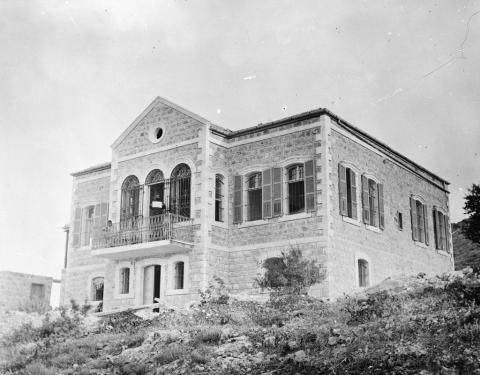A number of times during his life, particularly in the years immediately following the Ascension of ‘Abdu’l-Bahá, Shoghi Effendi retired to Switzerland to regain health, energy and self-confidence. He lived a very physically rigorous life here. Rúhíyyih Khánum wrote of "the Bernese Alps, where he had spent so many months of his life walking and climbing."
Balance
Interlaken is in the heart of the Bernese Oberland and the starting point for innumerable excursions into the surrounding mountains and valleys. Often long before sunrise Shoghi Effendi would start out, dressed in knee breeches, a Norfolk jacket and black wool puttees on his legs, sturdy mountain boots, and a small cheap canvas rucksack on his back and carrying a cane. He would take a train to the foot of some mountain or pass and begin his excursion, walking often ten to sixteen hours, usually alone, but sometimes accompanied by whichever young relative was with him; they could seldom stand the pace and after a few days would start making their excuses. From here he also climbed some of the higher mountains, roped to a guide. These expeditions lasted practically up to the time of his marriage...Shoghi Effendi often told me these stories of his early years in the mountains and showed this or that peak he had climbed, this or that pass he had been over on foot. His longest walk, he said, was forty-two kilometres over two passes. Often he would be caught by the rain and walk on until his clothes dried on him. ... Shoghi Effendi would tell me of how he practically never ate anything until he got back at night, how he would go to a small hotel (he sometimes took me there to the same simple restaurant) and order pommes sautees, fried eggs and salad as these were cheap and filling, go home to his little room under the eaves and fall into bed exhausted and sleep, waking to drink a carafe of the cold mountain water, and sleep again, until, driven by this terrible soul-restlessness, he arose and set out again before daybreak.
